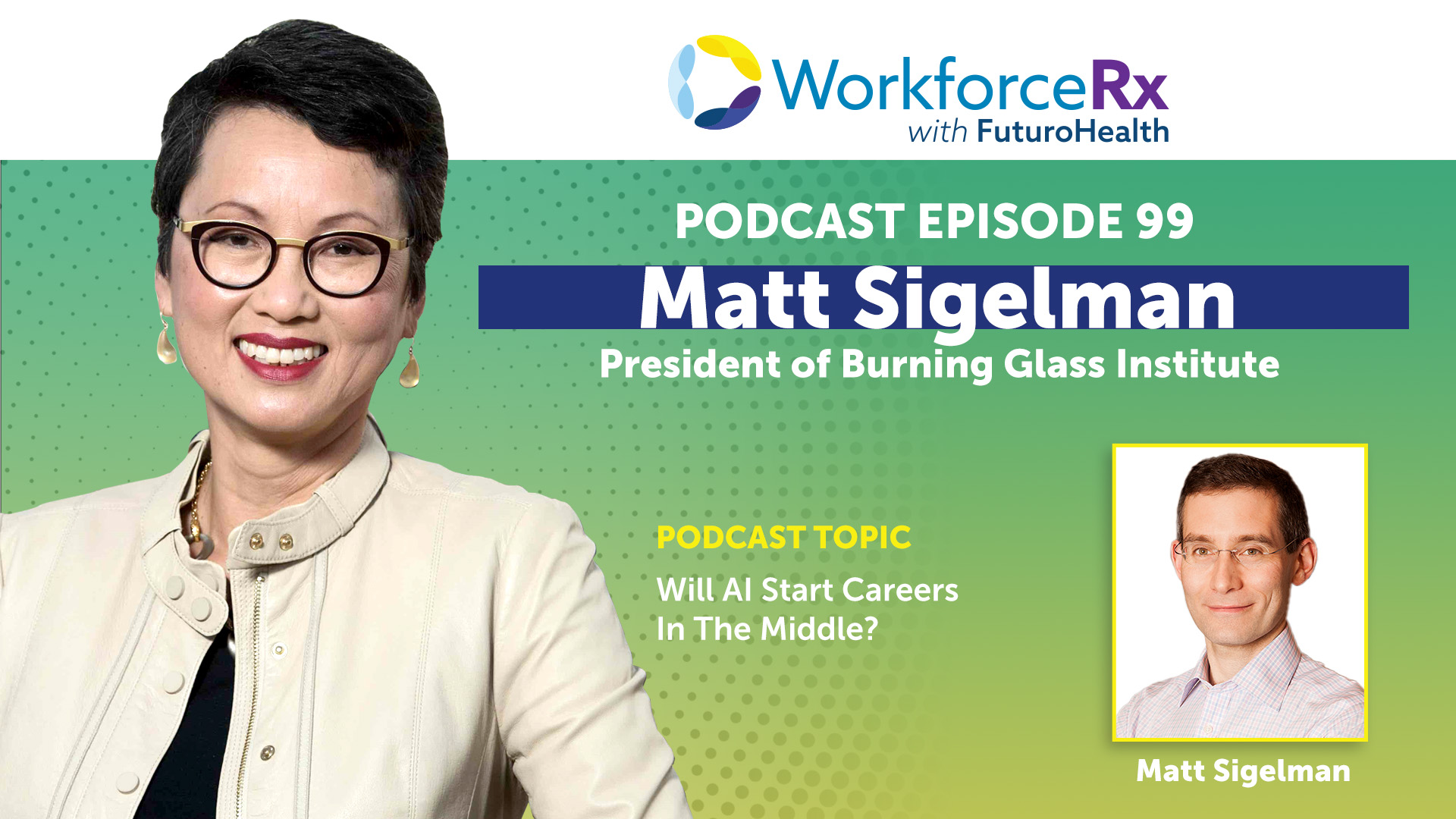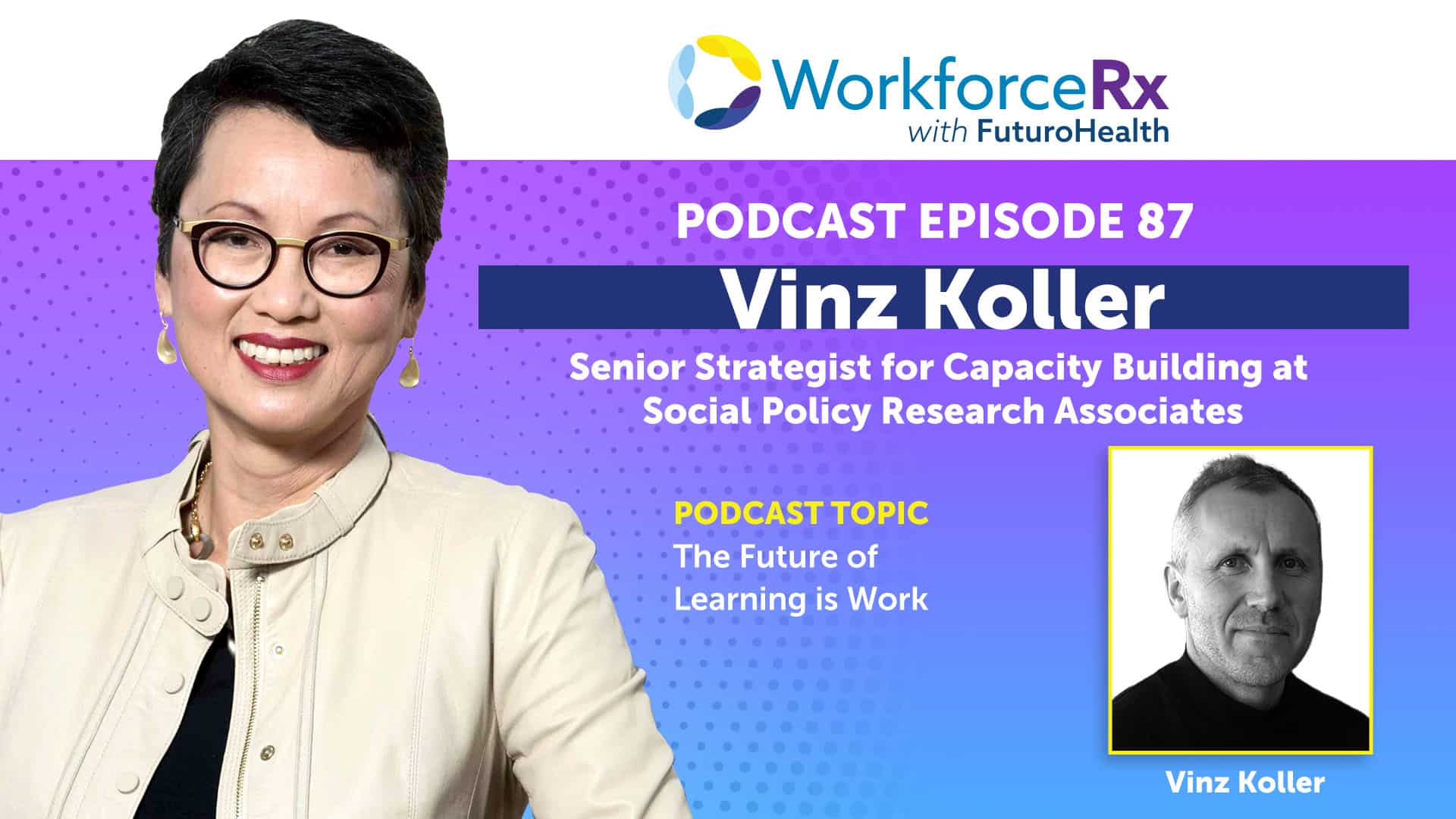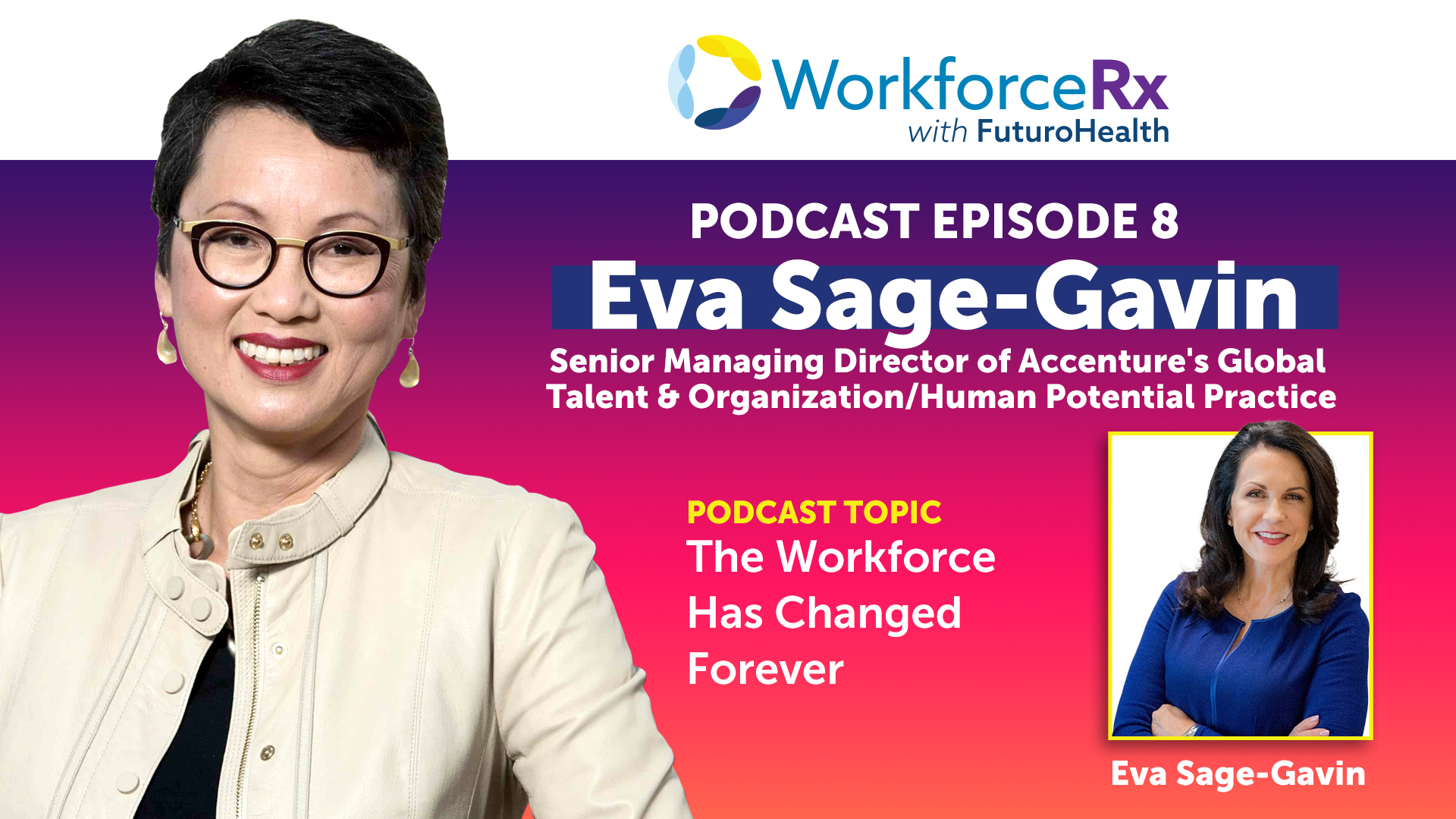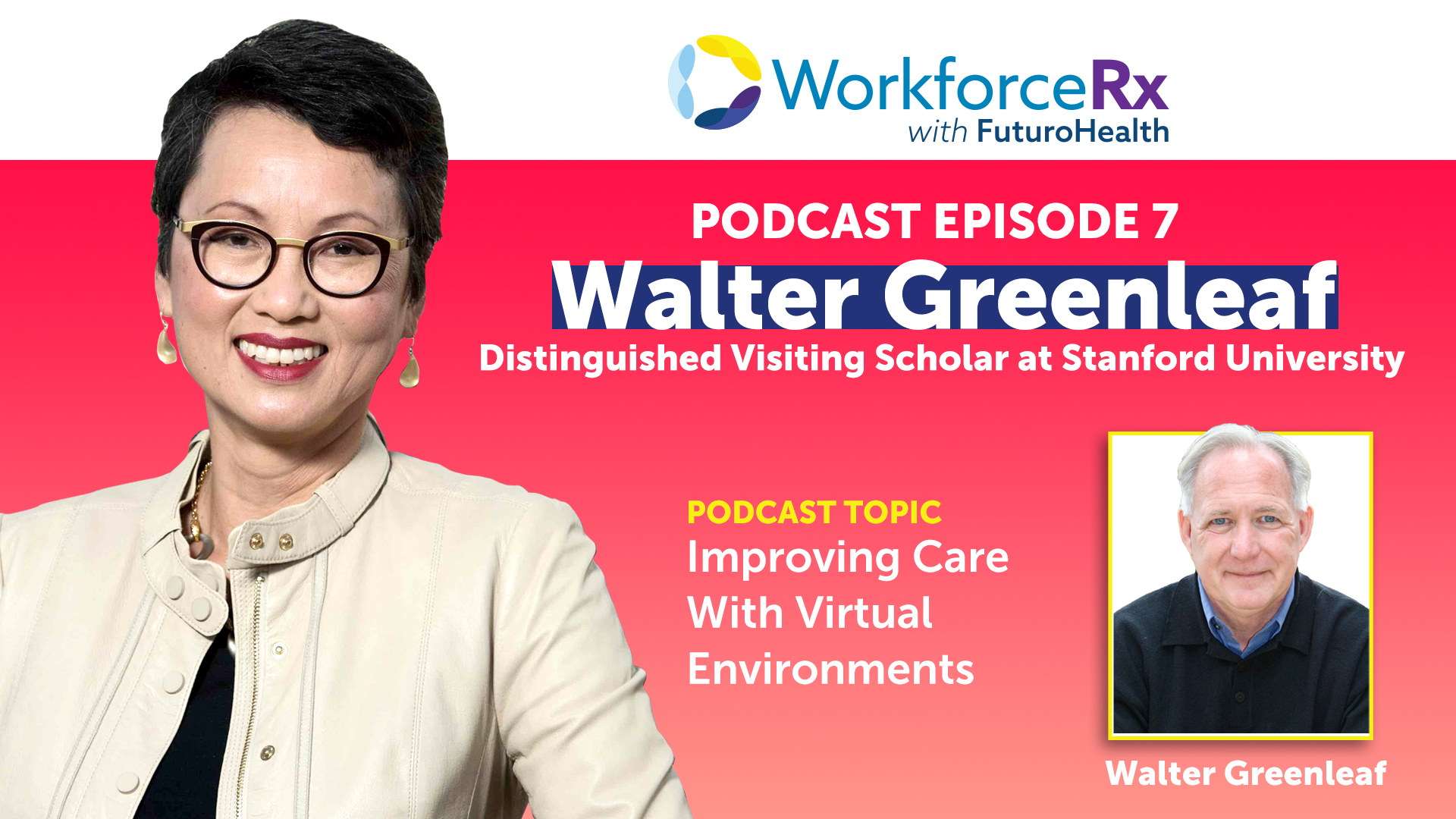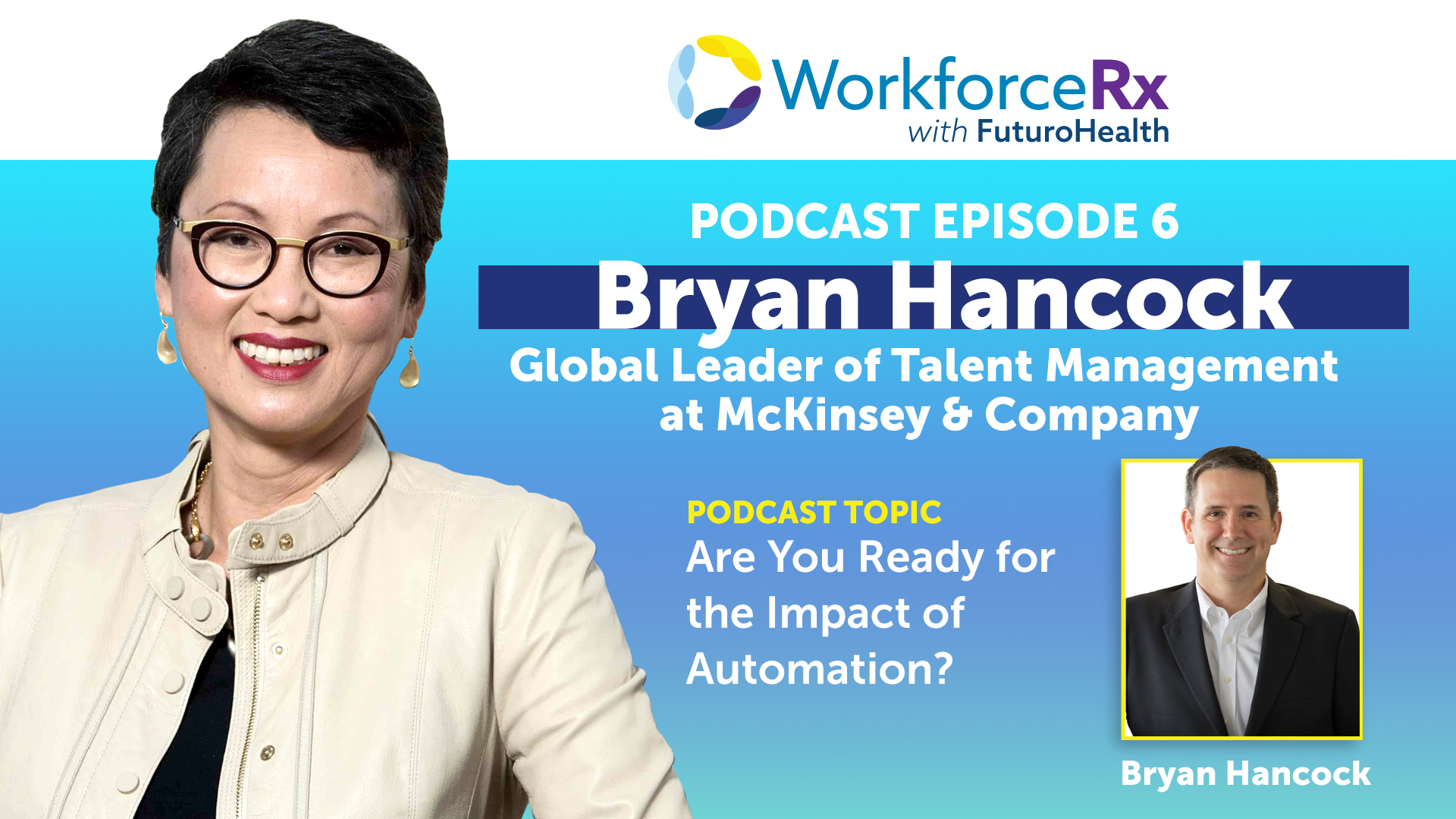We may soon face a future where AI Agents handle the bulk of low-skilled, entry-level work, forcing educators to figure out how to train people to start their careers in the middle of the ladder instead of on the first rung. That’s the conclusion our guest Matt Sigelman is drawing from research on AI conducted by the organization he heads, Burning Glass Institute, a leading labor market analytics firm. “I think there are questions here both for how AI helps people get into work, but also for whether people can move up within it,” he tells Futuro Health CEO Van Ton-Quinlivan. This challenge comes on top of deficiencies Burning Glass has identified in how high schools handle workforce training. “When you look at all the credentials students are earning in high school today, only about 18% are actually in demand and lead to high mobility jobs.” Those roles, which Sigelman calls “launchpad jobs” have helped two million workers in the US without degrees earn six figure salaries. Conversely, Burning Glass research shows if you pick the wrong type of job at the start of your career, it can lead to poverty by age forty. In his encore appearance on WorkforceRx, this pioneer in real-time labor market data shares other research on career mobility in the US and abroad, provides an update on the movement to increase skills-based hiring, and reveals what he thinks are the new “power skills” of the 21st century workforce. Don’t miss this wide-ranging and revealing conversation.
Continue readingVinz Koller, Senior Strategist for Capacity Building at Social Policy Research Associates: The Future of Learning is Work
One of the oldest forms of training, apprenticeship, has new relevance in the age of AI according to today’s WorkforceRx guest Vinz Koller, a nationally influential voice on the subject and self-described apprenticeship evangelist. Why? Because the pace of change brought about by AI and other technologies has accelerated to a point where predictions about what specific skills workers in most fields will need even a year from now have questionable value. “The model of apprenticeship is particularly appropriate because in my view, apprenticeship is a look into the future. You are actually in the workplace. You don’t have to predict what things will be like in ten years. The workplace will evolve and you will evolve with it,” Koller tells Futuro Health CEO Van Ton-Quinlivan. In his role as senior strategist for Capacity Building at Social Policy Research Associates, Koller works with local communities, states, and the US government to determine how to make work-based learning more accessible to more people. On the learner/worker side, a welcome step would be enabling apprentices to earn an associate-level degree upon completion of their training. For employers, key needs include regulatory changes to make hosting apprentices easier and help with setting-up and tracking programs. The aim, he says, is to turn more employers into “co-producers of talent” instead of just consumers of it. This expansive conversation also covers the multi-faceted return on investment for employers, the need for high school recruitment programs, and the role apprenticeships could play in reducing student debt.
Continue readingDr. Tom Mitchell, Carnegie Mellon University: The Impact of AI on the Future Workforce
When it comes to the impact of artificial intelligence on the workforce, there is still a major split between those who worry about “robots” replacing workers, and those who think employees will benefit from AI if it is harnessed the right way. On this episode of WorkforceRx, Futuro Health CEO Van Ton-Quinlivan asks one of the world’s leading experts in the field, Dr. Tom Mitchell of Carnegie Mellon University, to weigh in on the debate. “The big determinant of how the future of work is going to play out is how we develop these technologies, and how we choose to adopt them. Do we adopt computers as assistants that allow people to do their job better, or do we use them to automate the task? The future is really ours to define.” Mitchell is currently updating a 2017 U.S. National Academy study on AI and the workforce at the request of Congress, and provides us with a peek into what has changed in the intervening years with regard to remote work, online learning, self-driving cars and the speed with which the field of AI itself is changing. Don’t miss this penetrating look at one of the most disruptive technologies of our time.
Continue readingEva Sage-Gavin, Senior Managing Director of Accenture’s Global Talent & Organization/Human Potential Practice: “The Workforce Has Changed Forever.”
Workers are showing the strains of social isolation, disrupted work and family routines, and sustained anxiety for personal safety — all induced by the pandemic. Fortunately, employers are taking note according to Eva Sage-Gavin, a former Fortune 500 executive who now advises C-suite leaders on talent strategy for Accenture. Sage-Gavin says employers are realizing they need to take a “whole human” approach to HR to navigate through this crisis of human resilience, and address employee needs for connection, relationship, and purpose if they are going to keep their workforce productive. In this revealing episode of WorkforceRx, Sage-Gavin and Futuro Health CEO Van Ton-Quinlivan – who first met a decade ago serving on President Obama’s Skills for America’s Future initiative – discuss a new global partnership to connect displaced workers to jobs, the worrisome “she-cession” as women drop out of the workforce, the enhanced impact of modern boards, and a key ingredient to helping employers solve problems in these extraordinary times.
Continue readingWalter Greenleaf, PhD, Distinguished Visiting Scholar at Stanford University: Improving Care with Virtual Environments
When he first started trying to score clinical research data in the mid-1980’s, Stanford University neuroscientist Walter Greenleaf was using a ruler, pen and paper. Now, thanks in part to his pioneering efforts, similar research can be conducted using virtual reality and augmented reality devices. These technologies are also being integrated throughout medicine, including treatment for various mental health issues, a special focus of his. For instance, patients can be exposed to anxieties or fears through carefully designed virtual environments, allowing them to build confidence while clinicians gauge their progress. Greenleaf, a Distinguished Visiting Scholar at Stanford University’s Virtual Human Interaction Lab, also sees broad potential for using virtual environments in workforce development and training, from handling difficult people and situations to bridging cultural gaps. Join Futuro Health’s CEO Van Ton-Quinlivan as she draws fascinating insights from Greenleaf gathered over decades of groundbreaking work in academia, technology development and medical product development, and find out what two skills he believes will open doors for healthcare workers in the decades to come.
Continue readingBryan Hancock, Global Leader of Talent Management at McKinsey & Company: Are You Ready for the Impact of Automation?
Bryan Hancock has spent the last two decades focused on the disconnect between the skilled workers employers need and what is available in the workforce. As Global Leader of McKinsey & Company’s Talent Management Practice, he’s able to tap into the firm’s deep research on workforce trends to advise private and public sector clients and what he’s seeing is an even larger skills gap developing as automation and digitization take over a significant portion of what he calls “the dull and dangerous” work. In fact, McKinsey estimates 30 to 40 percent of all workers in developed countries may need to move into new occupations or at least upgrade their skill sets significantly in the next decade. Despite that daunting challenge, he’s not discouraged because many large employers are making big investments in employee learning opportunities, and technologies like Virtual Reality are creating fun and effective options for training. He’s also encouraged by growth in the “workforce ecosystem” – independent foundations, companies, and other organizations who are innovating to close gaps in skills and opportunity. Check out this episode of Workforce Rx as Bryan and host Van Ton-Quinlivan explore all of those issues plus the growing importance of soft skills, the impact of the gig economy, and how employers can take a “talent first” approach.
Continue reading
